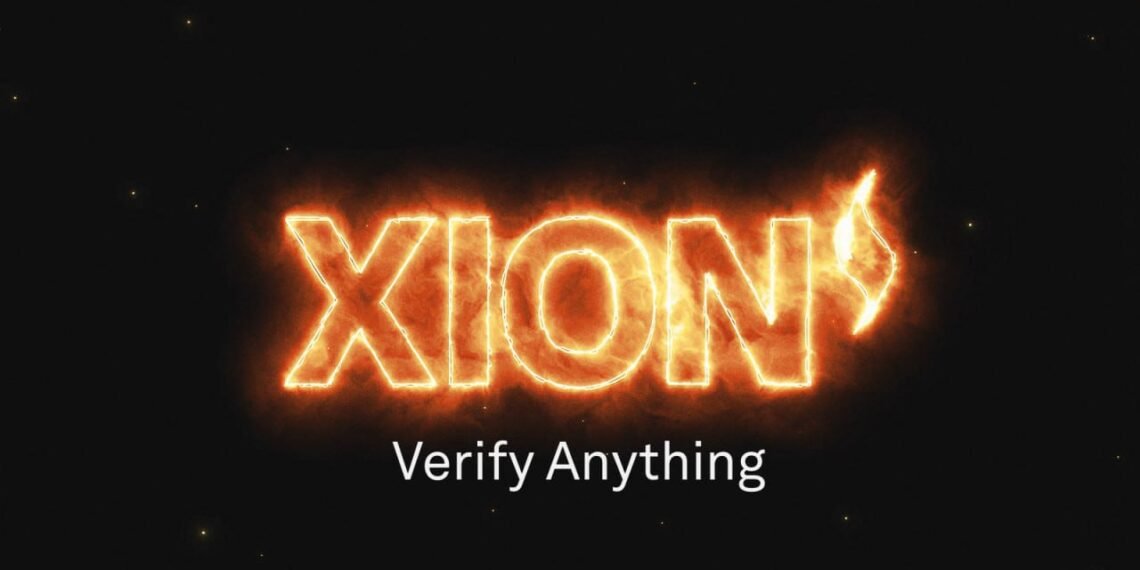Global verification pioneer XION has announced its evolution into a full-scale verification infrastructure company, unveiling groundbreaking technology designed to restore trust in the internet by proving authenticity behind the scenes, seamlessly and invisibly to users.
The US-based firm, founded four years ago by Anthony Anzalone, is confronting one of the digital era’s most critical challenges: the internet’s systemic trust deficit. Its technology quietly validates that users are human, content is authentic, and credentials are genuine, without demanding new behaviors or technical knowledge from the public.
In an age dominated by misinformation, fraud, and synthetic media, XION’s mission is clear: to rebuild credibility across the digital landscape through cryptographic verification integrated into existing authentication systems.
A Crisis of Trust in the Digital Age
The data paints a grim picture. According to Gallup, global trust in the media has dropped to a 50-year low of just 28%. Researchers at MIT report that false news spreads six times faster than verified information and is 70% more likely to be retweeted. Meanwhile, cybersecurity firm Imperva estimates that half of all web traffic is non-human, with 32% generated by malicious bots.
The financial toll of this crisis is staggering. Juniper Research forecasts that between 2023 and 2028, fraud linked to AI-generated synthetic identities will cost financial institutions over $362 billion, while ad fraud continues to drain more than $100 billion annually. By 2026, experts warn, 90% of digital content could be synthetic or manipulated.
“These aren’t just numbers. They represent broken promises, shuttered businesses, and altered realities,” said Anthony Anzalone, XION’s founder and CEO. “When people can no longer distinguish truth from fiction, the very fabric of society begins to unravel.”
Reactive Systems Can’t Keep Up
XION argues that most current trust tools are reactive, fragmented, and user-hostile. Traditional methods such as CAPTCHAs only detect bots after they appear. Web3 systems, while promising, often introduce confusing new user interfaces and complex wallet setups. And provenance labels meant to identify authentic content frequently confuse users instead of reassuring them.
The imbalance between AI-driven deception and the tools built to verify authenticity continues to grow. AI-powered attacks surged by more than 700% in the last half of 2024, enabling hackers to breach systems up to 40% faster than before.
Read Also:
- Foreign Affairs Minister demands AI revolution in foreign service academy curriculum
- FG launches major public Finance reforms ahead of January new Tax regime
- AI revolution could supercharge global trade by 40% by 2040 — WTO report warns digital divide must be closed
XION’s innovation lies in creating a universal verification layer that operates in the background. Its system quietly confirms that users are human, validates content authenticity, and authenticates credentials—all through privacy-preserving cryptographic proofs.
Unlike typical blockchain solutions, XION’s platform does not rely on crypto wallets or token friction. It integrates directly into an organization’s existing architecture, ensuring zero disruption to the user experience. The system is also MiCA and eID regulatory-ready, making it one of the first verification infrastructures compliant with emerging digital identity standards.
Global Adoption and Proven Use Cases
Already, XION’s invisible verification technology is being adopted by over 150 global brands and serves a base of more than one billion users. The company is expanding across sectors including marketing, loyalty and rewards, gaming, travel, and live events, each leveraging the platform to fight fraud and enhance transparency.
For marketers, XION enables verified engagement and authentic user attention. In gaming, it guarantees player legitimacy without friction. For event organizers, it offers fraud-resistant ticketing, eliminating inflated resale prices. Recruiters and HR professionals can verify candidates’ credentials instantly, building trusted workforces backed by authenticated data.
Anzalone emphasized that verification is now non-negotiable. “Trust has become the scarcest resource in digital environments,” he said. “Verification is no longer optional, it’s foundational. The next layer of the internet isn’t about speed. It’s about proving what’s real.”
A Call to Action for the Digital World
XION’s message is direct: developers integrate verification before fraud occurs; brands prioritize authenticated engagement; and users begin expecting authenticity as a default.
As the world faces escalating misinformation, fraud, and synthetic media, XION’s rise marks a new chapter for the internet, one where trust is restored not by policing users, but by engineering truth into the system itself.






